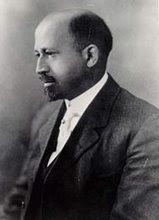 Rastafarian priest Headley Samuel holds up a stem of pungent marijuana and reveals his recipe for bliss: "Fast, breakfast, drink aloe vera and smoke ganja."His routine, which he says takes him to "the highest spiritual realm", makes him a lawbreaker. But soon that may change. Jamaica, the largest producer of cannabis in the Caribbean, is considering decriminalising use of the drug.A seven-member government commission has examined possible reforms of the nation's anti-drug laws, which some police complain clog up courts and jails with marijuana-related cases. Possession of ganja, as it is known in Jamaica, can be punished with imprisonment. Some Jamaicans consider that disproportionate and a recent newspaper poll revealed that Jamaicans rate smoking above drinking as a way to wind down. It is widely used, with fumes wafting from Kingston building sites and across bars. Quantities are openly for sale in parts of downtown Kingston for as little as 35p for a spliff.
Rastafarian priest Headley Samuel holds up a stem of pungent marijuana and reveals his recipe for bliss: "Fast, breakfast, drink aloe vera and smoke ganja."His routine, which he says takes him to "the highest spiritual realm", makes him a lawbreaker. But soon that may change. Jamaica, the largest producer of cannabis in the Caribbean, is considering decriminalising use of the drug.A seven-member government commission has examined possible reforms of the nation's anti-drug laws, which some police complain clog up courts and jails with marijuana-related cases. Possession of ganja, as it is known in Jamaica, can be punished with imprisonment. Some Jamaicans consider that disproportionate and a recent newspaper poll revealed that Jamaicans rate smoking above drinking as a way to wind down. It is widely used, with fumes wafting from Kingston building sites and across bars. Quantities are openly for sale in parts of downtown Kingston for as little as 35p for a spliff."We are happy to know this has not been forgotten," said Paul Burke, president of the National Alliance for the Legalisation of Ganja. "It would release the police from the bind of an unjust and an unenforceable law. "If you go to a football match in Jamaica, it is smoked with impunity. Ganja should be allowed to be smoked in people's private residences and everybody should be allowed a certain amount and should be allowed to grow some stems in their own area."
The drug is revered by Rastafarians who believe a verse in Psalms which says God "causeth the grass to grow for cattle, and the herb for the service of man" gives them the right to defy the law. But thousands more use it as a recreational drug and cultivation has increased following the recent crackdown on cocaine trafficking.
The western slopes of the parishes of Westmoreland and St Elizabeth produce the most coveted varieties. There the crop, which grows to two metres, is hidden from the police and army among sugar cane fields.
"I don't see why the government tries to fight it," said Verona White, 49, a mother of six children and an orthodox Bobo Rastafarian. "Anywhere water catches in Jamaica, it grows. Doctor, lawyer, everybody takes it. I went to see a pastor in St Ann's parish and he told me he couldn't preach without it."
Another Bobo rasta, priest Emmanuel Moses, 56, made more outlandish claims for its powers.
"It drives away Aids and diseases like that," he said. "It's a medicine for the world. It's not a drug. Herb is herb."
British government officials in Jamaica, concerned at the failure of police to prevent organised crime and cocaine trafficking which causes violence on Britain's streets, said decriminalisation could free up the criminal justice system for fighting more serious crime. But it is not a simple equation.
"Jamaica, sadly, is a world leader in the cultivation of marijuana and one of the big problems in the country is the ganja-for-guns trade with Haiti," said Brendan Gill, the senior political secretary at the British high commission.
"The guns come into Haiti from the US and then they find their way here. Legalisation might entrench the power of the dons and gangs who are already using marijuana to bring in guns."
reprinted from The Guardian, Tuesday March 11th 2008










No comments:
Post a Comment